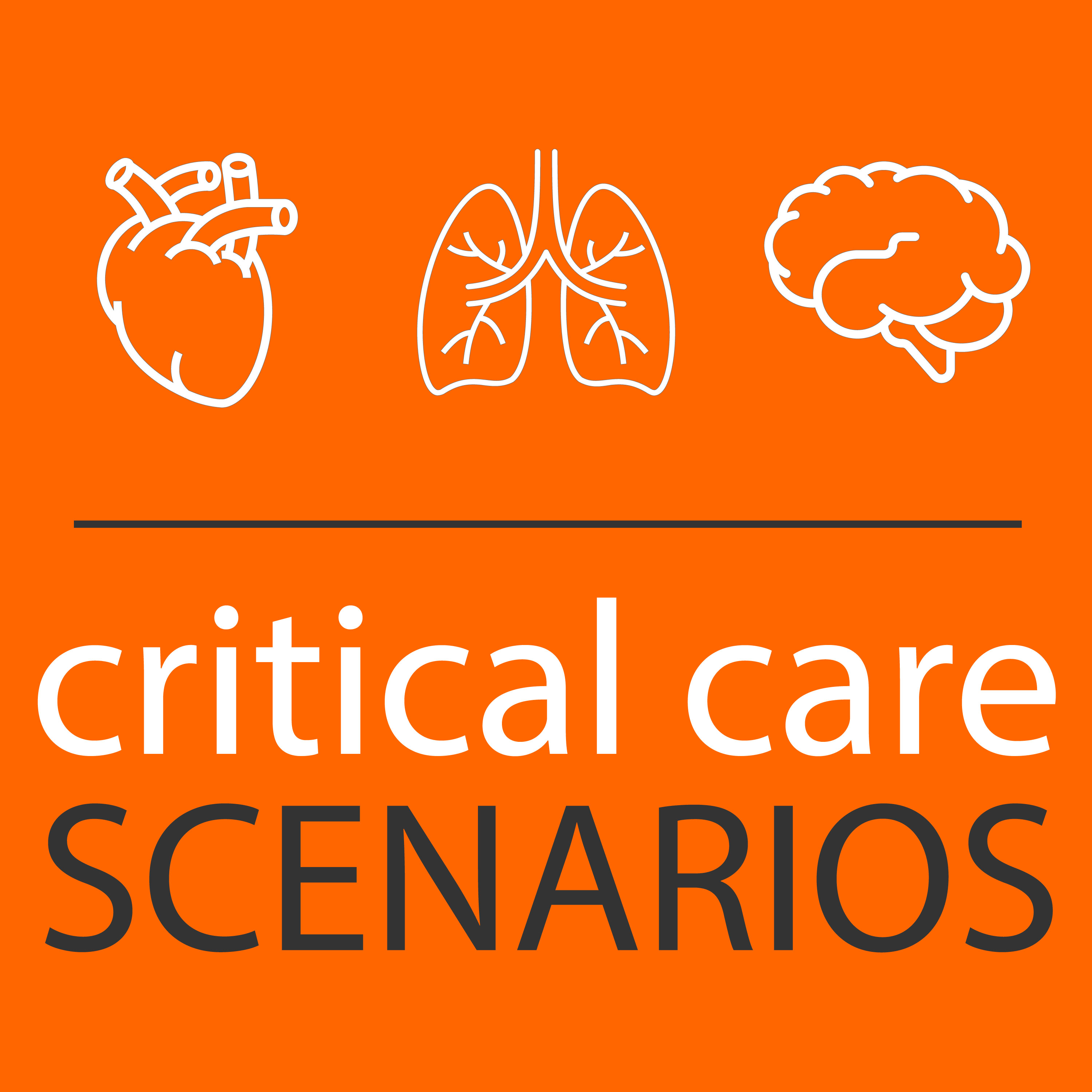Episode 76: Rehabilitation psychology, with Megan Hosey
Description
We discuss the field of rehabilitation psychology, and how it can help patients with persistent critical illness, with Dr. Megan Hosey (@DrMeganHoseyPhD), clinical psychologist and assistant professor at Johns Hopkins School of Medicine, where she practices in the medical ICU.
Find us on Patreon here!
Buy your merch here!
Takeaway lessons
* Rehabilitation psychology is a specialty of clinical psychology that generally partners with patients who have acute illness or injury, and helps them adapt to life in these new circumstances. They discuss health behaviors, values and priorities, help patients find paths back to what they love, and assess cognitive and behavioral changes that accompany new illness. In the ICU, they can assist with the psychological aspects of care, particularly in patients with a prolonged stay where psychological factors play an important role in recovery, or for treatment-refractory delirium.
* Delirium often dominates the patient experience of the ICU. This is primarily an experience of inattention, with relatively little awareness of their circumstances, the day, the context for events, and the presence of often-vivid hallucinations and delusions.
* ICU care is highly anxiety provoking, with common questions of “when,” “why,” and many other (often unanswerable) questions. The more certainty and structure you can provide, the better.
* Depression is common as well in longstanding inpatients, and is often better characterized as “hospital demoralization,” a fairly appropriate response to prolonged confinement and limited access to their regular life. This can lead to sensations of helplessness and hopelessness.
* Motivation can be improved by strategies to reduce the emotional barriers to engagement, while also strengthening their sense of meaning—i.e. what matters to them, and how will their involvement help move towards that?
* Effective psychological care relies on communication with the patient, and medical measures like tracheostomies and endotracheal tubes can be a barrier. Good care that minimizes sedation and delirium, close involvement from respiratory therapy and speech therapy (with tools like speaking valves), and non-verbal tools like speech boards, eye gaze, yes/nos, etc. are key.
* Patients with persistent/chronic critical illness appreciate having their schedule set out for the day, to give them a clear sense for what to expect and reduce anxiety.
* Try to build pleasurable activities into their day, aka “behavioral activation.” Doing things that are meaningful and pleasurable creates a positive feedback loop that enables more activity. Animal therapy, “sunshine therapy” (getting outside), music therapy (or just playing preferred music) are all valuable. Merely asking patients their preferred music and playing it can reduce anxiety and sedation requirement (see Linda Chlan’s work on this)
* Relaxation strategies can be learned, and in the ICU setting, vital sign monitoring can even be used as a form of biofeedback to appreciate changes in heart rate or respiratory rate in response to stress.
* Motivational interviewing emphasizes taking control over the aspects of their life that can be controlled.
* Normalize and validate the difficulty of being in the hospital.
More Episodes
We discuss transfusion reactions, risks, and management, including infection, consent, TRALI, TACO, and hemolytic reactions—with Dr. Joe Chaffin (@bloodbankguy), the “Blood Bank Guy” and transfusion medicine specialist.
Learn more at the Intensive Care Academy!
Find us on Patreon...
Published 09/18/24
Published 09/18/24
Experts in critical care share their approach to post-intubation sedation.
Contributors:
* Jason Wieland
* Casey Albin
* Jace Mullen
* Kali Dayton
* Nick Ghionni
* Emily Fridenmaker
Check out the Intensive Care Academy here!
Find...
Published 09/04/24


